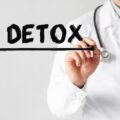
What is Drug Addiction?
Drug addiction is an affliction that does not discriminate. It affects people of any age, gender, race, or socioeconomic background. Hence, highlighting the importance of accessible and inclusive drug rehab programs.
According to the National Institute on Drug Abuse (NIDA), Addiction is a chronic, relapsing disorder characterized by compulsive drug seeking and use despite adverse consequences.
Furthermore, drug addiction is a brain disorder due to “functional changes to brain circuits involved in reward, stress, and self-control.” The effects of drug addiction can linger long after use.
For example, When one uses drugs, certain brain areas are “hijacked.” In other words, the drugs activate brain parts associated with feeling good. Additionally, these areas in the brain are the reward circuit, which reinforces specific behaviors.
Feel-good chemicals flood the brain when drugs hijack this reward circuit, so over time, people who use drugs will struggle to feel good without them. In severe cases, they’ll struggle to feel normal without drugs. Hence, drug addiction has set in.
What Drugs Are Most Commonly Abused?
Many commonly used drugs are highly addictive. Even prescription drugs like Xanax can be addictive. Prescription painkillers add to the current opioid crisis in America, for example. As a result, many people become unintentionally addicted to drugs and might move on to illegal drugs when their prescriptions run out.
Some of the commonly abused drugs are:
- Cocaine
- Methaampehtimeine
- Gamma-hydroxybutyrate (GHB)
- Hallicnognes
- Opioids
- Inhalants
- Marijuana
- Adderal (Cannabis)
The effects of each drug can differ depending upon the class of drugs. Stimulant drugs activate brain activity, while depressant drugs slow down brain functioning. However, drug addiction often results in similar consequences across many areas of a person’s life.

What Are the Effects of Drug Addiction?
Drug addiction can devastate individuals, families, and communities, leading to profound physical, mental, and emotional harm. The effects of drug addiction can be short or long-term.
Short-term effects include the desired effect of the drug itself. In addition, these short-term effects include adverse consequences, like reckless behaviors under the influence or the feeling of a “crash” after using.
Some short-term effects of drug addiction can happen while high or when coming down. These include:
- Change in appetite
- Insomnia
- Elevated heart rate
- Slurred speech
- Changes in thoughts and behaviors
- Feeling of euphoria
- Coordination problems
- Injuries while under the influence
- Fatigue
- Irritability
Long-term effects, however, build up over time, leading to severe consequences in your life. They create negative impacts on social, physical, and mental health, including:
- Relationship issues
- Poor performance at work or school
- Bad hygiene
- Change in appearance
- Trouble thinking
- Legal problems
- Financial problems
- Depression and anxiety
- Chronic physical illness
The long-term effects of drug addiction often cause significant problems. Therefore, when two or more signs or symptoms of drug addiction are recognized, it’s wise to get into drug addiction treatment in Murfreesboro or Nashville, Tennessee.
Signs and Symptoms You Need Drug Rehab
Like all disorders, drug addiction has tell-tale signs and symptoms. Addiction causes changes in one’s physical appearance, mood, and behaviors. Thus, family members and loved ones will most likely notice these signs of addiction.
Signs and symptoms of drug addiction include:
- Urges to use drugs throughout the day
- Using more drugs to get the same effects
- Strong cravings for drugs
- Trouble controlling impulses and emotions
- Moodiness
- Sloppy appearance and poor hygiene
- Neglecting work, school, and family obligations
- Lack of interest in activities once enjoyed
- Unable to cut back or quit using drugs
- Continuing to use drugs despite adverse consequences
Each drug can have its unique signs of abuse. For example, snorting cocaine or Adderall can damage nasal passages, while smoking crystal meth leads to severe dental problems. Once drug addiction is apparent, seeking help from a professional rehab facility immediately is crucial.
Quitting “cold turkey” isn’t a good idea as it rarely works and leaves one susceptible to relapse and even life-threatening withdrawal symptoms.
Drug Addiction Treatments in Murfreesboro
Various treatment programs are crucial as they cater to the diverse needs of those struggling with addiction. Inpatient programs offer intensive, round-the-clock care for those requiring a structured environment to overcome addiction, while outpatient programs provide flexibility for individuals who need to balance recovery with work or family commitments.
Additionally, holistic approaches, such as behavioral therapies, support groups, and medication-assisted treatment, address the complex nature of addiction, ensuring a more comprehensive and effective path to recovery.
Drug addiction programs in Murfreesboro include:
Partial Hospitalization Program (PHP)
Drug rehab in Tennessee includes a 30-day PHP, sometimes called “day treatment.” PHP occurs for several hours a day, 5 days per week. During PHP, patients get help identifying the underlying causes of drug addiction and learn practical skills to manage these issues.
Intenstive Oupatient Program (IOP)
IOP is similar to PHP. However, an IOP requires less time and is more flexible for personal schedules. IOP is ideal for those who completed a PHP as a step down in treatment. In addition, IOP can be an option for those unable to attend PHP due to work, school, or family duties.
Recovery Residences
Individuals might want to reside away from home during drug rehab to minimize distractions and focus on recovery. For this reason, Tulip Hill Recovery has recovery residences for those attending our programs.
Post-Recovery Program
After a patient completes active treatment during PHP, IOP, or a residential program, they may still need time to transition back to everyday life. Tulip Hill Recovery offers a post-recovery program to help them stay on the right track.

Benefits of Drug Addiction Treatment In Murfreesboro
Drug rehab in Tennessee offers a path to healing and recovery, providing individuals with the support and tools they need to overcome addiction and rebuild their lives. It offers a non-judgmental environment where individuals can receive compassionate care and guidance as they work towards a healthier, drug-free future.
The benefits of drug rehab include the following:
- Reduce the risk of relapse in early recovery
- Create a sense of community during treatment
- Foster peer support in recovery
- Learn healthy coping skills for stress and triggers
- Identify and treat underlying causes of drug addiction
- Dual diagnosis treatment for mental health and substance use disorders
- Help with vocational goals
- Improve family relationships
- Increase mental, emotional, and physical wellness
- Learn to manage cravings
- Build a healthy routine and structure
These benefits can help one maintain sobriety after drug rehab while offering hope and life skills to succeed after recovery.
Get Drug Addiction Treatment in Murfreesboro
Drug addiction affects your overall quality of life and gets in the way of achieving your goals. When you are addicted to drugs, you cannot stop or cut back on using despite any negative consequences. However, drug addiction is treatable, and Tulip Hill Recovery is here for you. Our drug rehab in Murfreesboro, Tennessee, and Bowling Green, Kentucky, can help you or your loved one overcome drug addiction.
Tulip Hill Recovery offers solutions to drug addiction with drug rehab in Smyrna and Murfreesboro, Tennessee, and the Clarksville, Franklin, and Chattanooga areas. Moreover, our treatment programs can help those who struggle to control or cut back on their drug use and veterans struggling with heroin, cocaine, opioid, alcohol, or Xanax addiction. We also treat underlying mental health disorders with our dual diagnosis treatment.
In addition, we have a post-recovery program to keep you on the right track after leaving our facility.
Reach Out For Drug Rehab in Tennessee Today
Your sobriety is within reach at Tulip Hill Recovery drug rehab in Tennessee. Our dedicated team stands ready to support you or your loved one on the path to recovery.
We believe in the power of transformation and look forward to helping you rediscover your life free from addiction. Above all, we aim to help you live your best life without drug addiction getting in the way.
Your recovery journey begins with us. We’re ready to be your trusted partner for a brighter tomorrow. Contact our family-owned drug rehab center today to learn more.



 Call Us
Call Us
 877-845-8192
877-845-8192